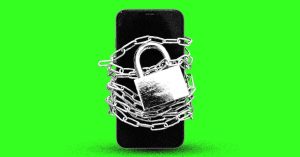Spyware attacks are on the rise, with Apple fixing a number of iPhone flaws used to implant the stealthy malware onto its devices. September’s iPhone updates iOS 17.0.2, iOS 16.7 and iOS 16.6.1 are prime examples. All iPhone upgrades fixed vulnerabilities that can be chained together to deliver spyware onto iPhones.
The worst thing about recent spyware attacks is they often require no interaction from the user. Attacks are delivered via images in iMessage, for example, which people don’t even have to open to become a victim.
Spyware attacks are very targeted, but they should be on your radar. Here’s what you need to know about spyware, who attacks target and what you can do to protect yourself.
What Is Spyware?
Spyware is malware that allows adversaries to spy on everything you do on your iPhone. Famous examples of spyware include the NSO Group-created Pegasus and the Reign spyware made by Israeli company QuaDream.
If there’s spyware on your iPhone, attackers can read all your messages including via encrypted apps such as WhatsApp and steal passwords and banking details, because they can view everything on your screen.
Spyware also offers access to the mic so it allows attackers to listen in to all your phone calls—and it offers them access to your location details. Reign could generate two-factor authentication codes to take over iCloud accounts and snoop on available data.
How Does Spyware Get Onto iPhones?
In the past, spyware would get onto iPhones when someone unwittingly clicked on a link. Now, adversaries take advantage of so-called zero-day vulnerabilities in software to perform attacks requiring no user interaction.
Instead, spyware is reaching iPhones via iMessages containing a malicious image or a WhatsApp call you didn’t answer, with attackers chaining vulnerabilities together to allow that to happen.
Who Should Be Worried About iPhone Spyware?
Spyware attacks of the past have been very targeted, so it’s very unlikely you have become a victim. Pegasus’ creator, the legit operation NSO Group, claims the spyware is only used on criminals such as terrorists. However, evidence suggests it has been used outside of this subset—for example, it was found on the phones of people close to Jamal Khashoggi, the journalist who was murdered in 2018.
More recently, security firm Citizen Lab said it caught Predator spyware attacks against a prominent pro-democracy Egyptian politician after he announced presidential ambitions.
Taking this into account, you should only be worried about spyware if you might be a target. Types of targets include dissidents, journalists, political figures and businesses in specific sectors.
How Can You Detect, Prevent And Mitigate iPhone Spyware?
You won’t always know if you are a victim of spyware, because the malware is pretty good at hiding itself. However, red flags include a slower-running iPhone or battery drain issues not related to a new software update. You might also notice new toolbars or search engines you don’t recall installing.
Some types of spyware can be disrupted if you restart your iPhone as doing so can remove attackers’ access temporarily.
You can also check for spyware using an app such as iVerify, which claims it can detect whether your device is compromised.
Another way to avoid spyware is via Apple’s super-secure Lockdown Mode, which apparently would have prevented recent spyware attacks that took advantage of software flaws fixed in iOS 16.6.1 and later in iOS 17.0.2 and iOS 16.7.
Since spyware attacks take advantage of vulnerabilities in software, it’s also important to keep your iPhone up to date with the latest iOS fixes.
Read the full article here








